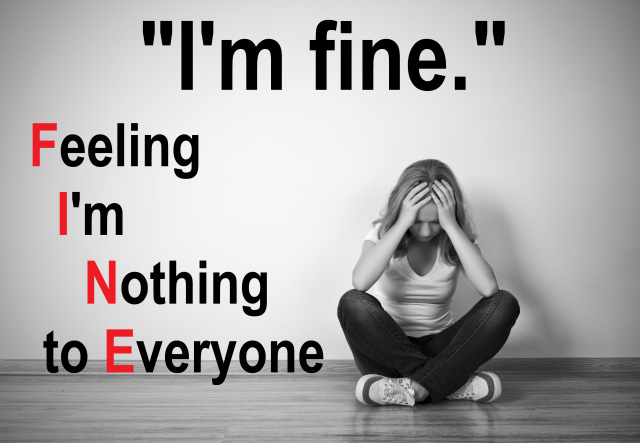
Last year, when the famous Bollywood actress Deepika Padukone opened the lid on her struggle with anxiety and depression and admitted to the world that she was on medication for the same, it became the talk of the town. Everyone started discussing mental health, there were articles in Newspapers, TV channels interviewing the actress and asking her to tell her story. Padukone became an example for many to come out and discuss their issue without fear. Why so? Because depression and mental illness isn’t usually talked about. There is shame and stigma attached to talking about depression. Today, on world health day, I would like to share some insights into depression and what needs to be done when in that situation.
My first experience in dealing with depression was when I was still in Medical school. My very close friend from medical school went through depression. It was then I realized that one needs a lot of empathy and patience to understand what someone is going through in depression. The extreme low mood during depression is such a bad feeling that no one chooses to be depressed by choice …it’s either circumstances or medical conditions that push an individual into depression.
My friend had slipped into depression due to a heart break. The impact was so huge that he withdrew himself from studies, friends and family. He slept longer than usual 8 hours, ate less and experienced terrible mood swings. He refused to talk to anyone and eventually turned suicidal. It is at this point that we had to rush him to the psychiatry department of our college hospital.
The psychiatrist talked to my friend privately for 15 minutes and then to his parents and me privately for another 10 minutes. Then, called us all in and sat us down and explained to us that my friend was suffering from an episode of major depression and medication was a must.
None of us were comfortable that he needed medication to recover from depression but, as counseled by the doctor, avoiding medicines wasn’t an option as he was feeling suicidal. Fifteen days later he started feeling better by 10% and the counselor started weekly sessions with him on the recommendation of the Psychiatrist to expedite recovery. Thankfully my friend recovered completely to his normal self in 6 months’ time and medicines and counseling were discontinued.
It is said that one in every four people suffer from anxiety and depression. According to WHO (World Health Organization) 350 million people worldwide suffer from depression in a year. By the year 2020, it will be the second most common disorder after heart disease. The chemical changes occurring in the brain during depression is a reduction in the level of Serotonin, dopamine and nor adrenaline – these are neurotransmitters (Chemicals which are produced by brain cells).
SOME COMMON SYMPTOMS OF DEPRESSION:
- Loss of interest / pleasure in activities which were previously enjoyable.
- Decreased energy.
- Feelings of guilt and low self – worth.
- Disturbed sleep and appetite.
- Poor concentration.
- Substantial impairment in the person’s ability to handle his/her daily responsibilities.
- At its worst it can make the person suicidal.
All symptoms are mild in the beginning and gradually increase in intensity over time.
RISK FACTORS:
- Genetics – If you have an immediate family member who has experienced major depression, there is a likelihood that you will also have an episode in your lifetime.
- Financial hardships and low education levels.
- Female Gender – depression is two to three times more likely in women as compared to men. Depression setting in after delivery of child occurs in some cases.
- Chronic illnesses like diabetes, tuberculosis, arthritis.
- Exposure to violence / Abuse especially in childhood.
- Being separated / divorced especially for men.
MANAGING DEPRESSION:
It is important to recognize depression and take it seriously. Going to a psychiatrist is a must
Mild cases can improve with counseling and psychological therapy (depending on the cause of depression, the person is taught coping mechanisms). Severe cases need anti-depressants along with psychological therapy. Self help is equally essential.
Some self help tips:
- Create a daily routine and try to stick to it.
- Exercise releases endorphins in the brain which give a feeling of happiness, hence daily exercise is a must to recover and prevent depression.
- Try to eat a healthy and balanced diet daily.
- Openly communicate with family members and loved ones about what you are experiencing to foster relationships and get support.
- Avoid alcohol and recreational drugs as they worsen depression.
- Be patient with yourself. For someone with depression even the smallest tasks can seem impossible.
Depression is treatable and plenty of help is available to assist a person cope with it and get back to leading a normal and enjoyable life.




ive struggled with depression for a while and really hate taking pills for it. I just started taking kratom tea and find it to be very effective.